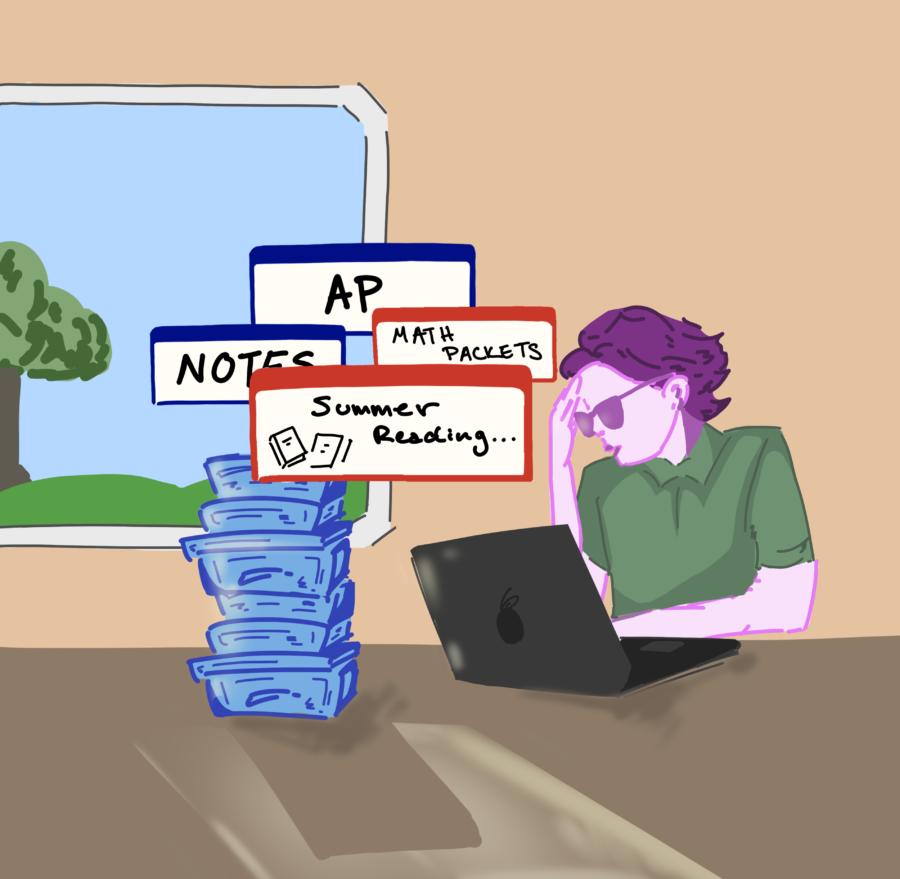By Umar Samdani, Co-Managing Editor
At its best, summer homework is an unfortunate paradox.
For nine arduous months, we submit homework assignments, meet project deadlines, and study for chapter quizzes. We toil for a proper rest, but to no avail. Thanksgiving break is practically ignored, as schoolwork simply increases exponentially. Then, we are given a quasi-mental break during Christmas, as the looming reminder of a closing semester seems deceptively comforting. And spring break simply functions as a working hiatus towards end-of-year projects and AP Exams.
So, is three free months too much to ask?
No. And there’s evidence to prove that teachers’ best intentions may get lost in translation. According to a research study by psychologists at Duke University, there is little to no correlation between completing summer assignments and standardized test scores or academic achievement during the school year. From personal experience, these results can almost certainly be attributed to procrastinating assignments until the penultimate day of summer, and then scrambling to “borrow” work from a friend. No work is ever completed properly when rushed, much less with beautiful weather outside.
Educators need to understand that students exercise a unique subset of their brain during the warm season. Having a summer job, traveling across the world, and playing with siblings all have cognitive benefits that are often taken for granted. Denise Pope, a senior lecturer at Stanford University, has encouraged schools to abandon the practice of “stiff” workload — worksheets, essays, and packets that encourage a linear way of thinking. Math packets, chapter readings, and book reviews are not particularly motivating tasks because they stifle student imagination and flexibility of thinking.
Teachers will respond that the tasks assigned during the summer months are not exclusively busywork: they help students retain information and prepare for the upcoming school year. Unfortunately, much of these acclaimed benefits ignore one confounding variable: student motivation.
Yes, maybe a select few may start their chemistry in June, save U.S. Government for July, and actively review their completed work for 30 minutes a day. But how often do you hear this story? More realistically, you will find a student emulating the study process described above (see: “borrow”).
There is, however, one aspect of summer homework that can prove to reap benefits: the reading assignments. The application portion of the task – the essays, book reports, and graded presentations – however, are not nearly as beneficial as the reading itself. Research from teachhub.com has indicated that even reading one book of choice over the summer can have beneficial cerebral effects, including an expanded vocabulary, broader perspective on social issues, and enhanced emotional intelligence and empathy.
Reading a novel — especially of our choice — is an especially suitable assignment for the summer months. With more free time on their hands, students have an opportunity to read closely, look for symbols, and make their own connections in a time frame not allotted during the fast-paced school year. But it doesn’t have to stop — or start — with reading assignments. Teachers should strive for assignment alternatives that allow students to pursue a previous interest. The goal should be to discover a passion first, and then connect it to the respective course. These open-ended solutions give summer a connotation of opportunity, and not oppression.
Umar Samdani can be reached at [email protected].





















































































